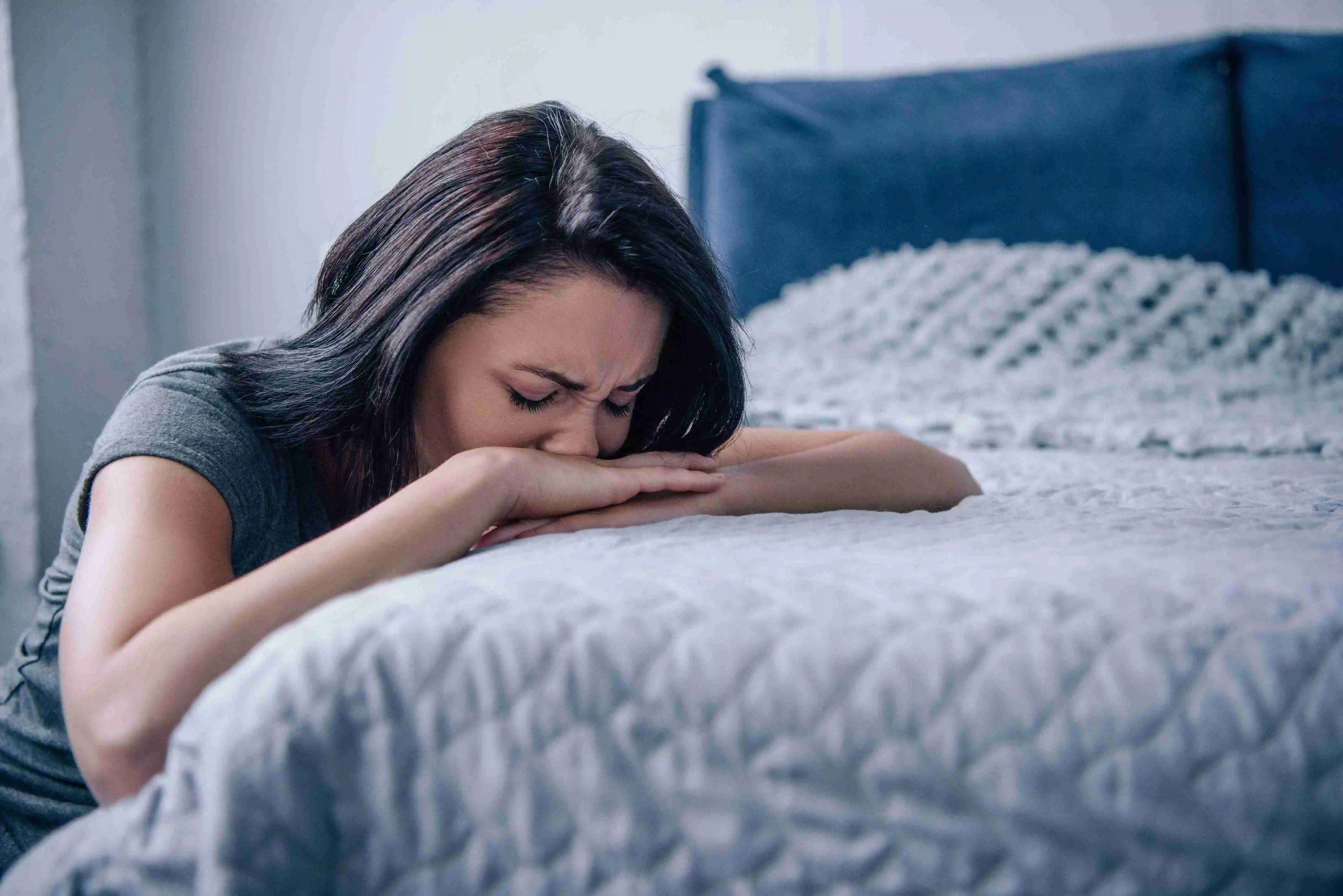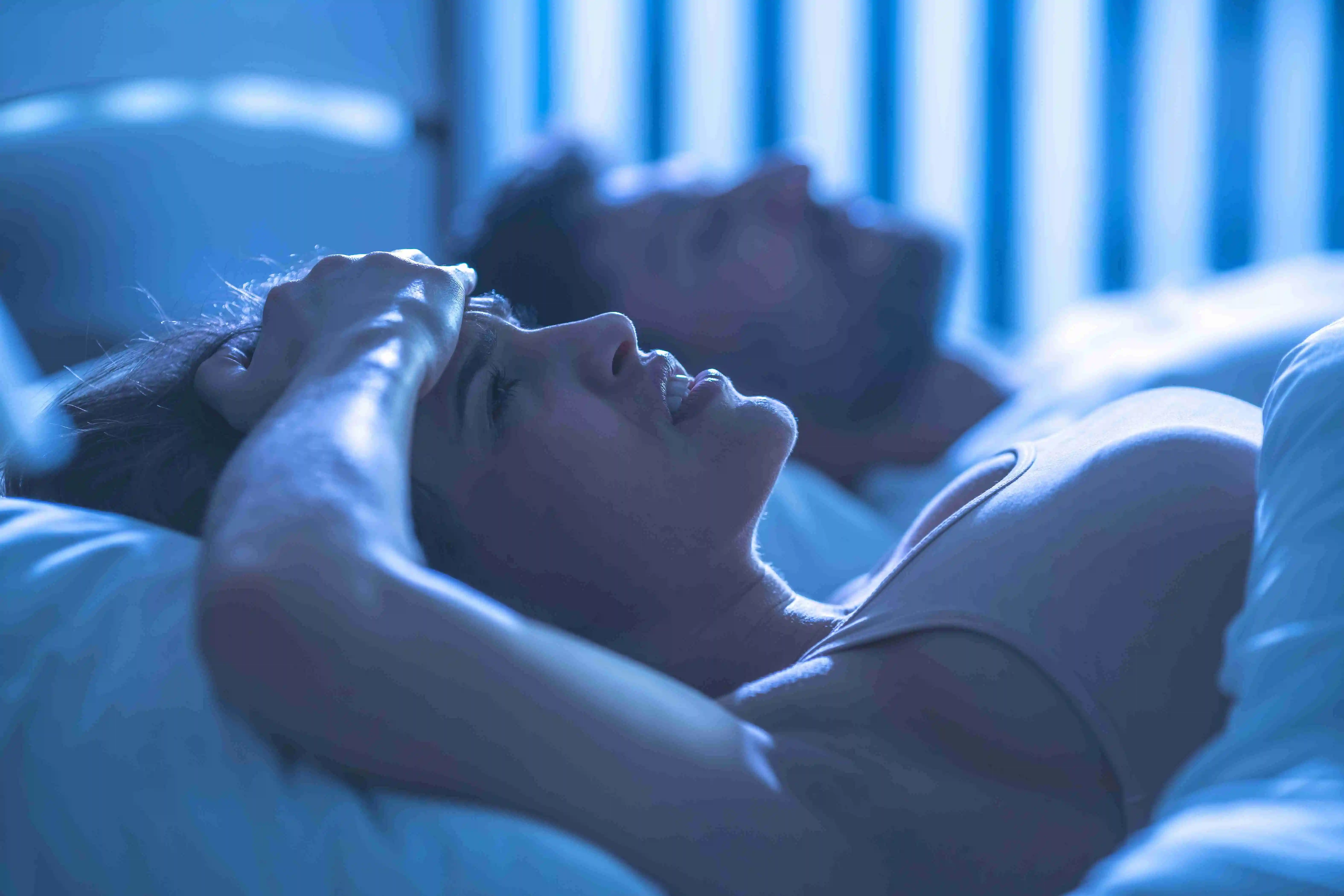Trauma can have a profound and lasting impact on an individual's sleep quality. Whether it's a single, life-altering event or a series of traumatic experiences, the effects on sleep can be significant and far-reaching. From nightmares and insomnia to hyperarousal and disrupted sleep-wake cycles, the consequences of trauma on sleep are complex and multifaceted.
In this article, we'll delve into the relationship between trauma and sleep, as well as how mental health plays a vital role in your sleep quality. We'll explore the common sleep disturbances caused by traumatic experiences and provide you with effective strategies to improve your sleep quality and restore restful nights.
What is trauma?
Trauma refers to an emotional response to a distressing or disturbing event that overwhelms an individual's ability to cope. It can result from a single, severe experience or persistent exposure to stressful situations.
Traumatic events often involve a threat to physical or emotional safety, causing feelings of fear, helplessness, or horror. Trauma can have a profound impact on an individual's emotional well-being, relationships, and overall quality of life.
Symptoms of Trauma
Symptoms of trauma can manifest in various ways, including emotional, cognitive, and physical responses to distressing or life-threatening experiences.
- Emotional Symptoms: Includes feelings of shock, denial, fear, anxiety, sadness, anger, guilt, and shame.
- Cognitive Symptoms: Involves intrusive thoughts, flashbacks, confusion, difficulty concentrating, and memory problems related to the traumatic event.
- Physical Symptoms: Ranges from sleep disturbances, fatigue, and muscle tension to rapid heartbeat, sweating, and gastrointestinal issues.
- Behavioral Symptoms: Includes avoidance of people, places, or activities that remind the individual of the trauma, social withdrawal, irritability, and hypervigilance.
- Detachment: Individuals may also experience a sense of detachment from others, a loss of interest in previously enjoyed activities, and a diminished ability to experience positive emotions.
How Trauma Affects Sleep Quality and Benefits of Sleep

Trauma can have a profound impact on your sleep quality, often manifesting in a variety of ways. Here's a closer look at how trauma can affect your sleep:
- Physiological Changes: Trauma can trigger physiological responses, such as increased heart rate, elevated blood pressure, and heightened stress hormones, which can interfere with the body's ability to enter and maintain a restful sleep state.
- Emotional and Psychological Impacts: Traumatic experiences can lead to anxiety, depression, and other mental health challenges, which can directly contribute to sleep disturbances and make it difficult to achieve quality sleep.
- Cognitive Disruptions: Trauma can cause intrusive thoughts, flashbacks, and difficulty concentrating, all of which can make it challenging to relax and fall asleep.
- Disrupted Sleep-Wake Cycles: Trauma can disrupt the body's natural circadian rhythms, leading to irregular sleep-wake patterns and difficulty maintaining a consistent sleep schedule.
- Avoidance Behaviors: Individuals who have experienced trauma may develop avoidance behaviors, such as avoiding bedtime or certain sleep-related activities, which can further exacerbate sleep problems.
Trauma and Sleep Disorders

There is a close relationship between trauma and sleep disorders. Trauma's physiological and psychological effects can directly contribute to the development of a variety of sleep disorders, including:
- Insomnia: Trauma can lead to difficulty falling asleep, staying asleep, or experiencing poor quality of sleep, resulting in insomnia.
- Nightmares: Traumatic experiences often manifest in the form of distressing, vivid dreams that can disrupt sleep and cause significant distress.
- Sleep Apnea: Trauma can increase the risk of developing sleep apnea, a condition characterized by interrupted breathing during sleep.
- Hyperarousal: Trauma can cause a heightened state of alertness and arousal, making it challenging to relax and fall asleep.
- Disrupted Sleep-Wake Cycles: Trauma can disrupt the body's natural circadian rhythms, leading to irregular sleep-wake patterns.
Strategies to Improve Sleep Quality after Trauma
Reclaiming restful nights after experiencing trauma can be a challenging, but not impossible, journey. Here are some effective strategies to help you improve your sleep quality:
Incorporate Relaxation Techniques
To foster a peaceful transition into sleep, it is essential to incorporate relaxation techniques into your nightly routine. Practicing mindfulness meditation can significantly calm both your mind and body, allowing you to unwind before bed.
Deep breathing exercises and progressive muscle relaxation are also effective methods to release tension and promote a sense of tranquility. Additionally, engaging in gentle yoga or stretching routines can help alleviate physical discomfort and enhance relaxation.
For those struggling with racing thoughts, guided imagery or visualization exercises can be particularly beneficial, as they redirect your focus and reduce anxiety, creating a more conducive environment for sleep.
Addressing Underlying Mental Health Concerns
Addressing any underlying mental health concerns is crucial for improving sleep quality. Seeking professional support from a therapist or counselor who specializes in trauma-informed care can provide valuable guidance and coping strategies.
Cognitive-behavioral therapy (CBT) is another effective approach that helps individuals identify and challenge negative thought patterns, fostering healthier coping mechanisms.
A healthcare professional might occasionally advise taking medication to treat conditions like anxiety or depression, which can have a big impact on sleep. By addressing these mental health issues, you can create a stronger foundation for restful sleep.
Components of Sleep Health
Establishing a healthy sleep routine is vital for maintaining overall sleep health. Sticking to a regular bedtime and wake-up schedule, even on weekends, reinforces your body's natural sleep-wake cycle, making it easier to fall asleep and wake up refreshed.
It is also advisable to avoid napping during the day, as this can disrupt your sleep-wake rhythm and make it harder to sleep at night. Furthermore, limiting the use of your bed to sleep and intimacy can help condition your mind to associate the space with rest while avoiding activities like work or scrolling through electronic devices can minimize distractions and promote better sleep hygiene.
Incorporate Physical Activity
Regular physical activity plays a significant role in enhancing sleep quality. Engaging in exercises such as walking, swimming, or yoga can help you achieve a more restful night’s sleep.
However, it is important to avoid intense workouts close to bedtime, as they can be stimulating and may interfere with your ability to fall asleep. Exploring grounding techniques, such as spending time in nature or practicing deep breathing exercises, can also help regulate your nervous system, further contributing to improved sleep quality.
Seek Support and Practice Self-Care
Seeking support and practicing self-care are essential components of a healthy lifestyle that can positively impact your sleep. Connecting with a support system, whether it be family, friends, or a support group, allows you to share your experiences and receive emotional support, which can alleviate stress.
Engaging in self-care activities, such as taking a warm bath, reading a book, or indulging in a favorite hobby, can help reduce stress and promote relaxation. Additionally, considering complementary therapies like massage or acupuncture can be beneficial in alleviating both physical and emotional tension, further enhancing your overall well-being and sleep quality.
How to Sleep Better (Factors that Affect Sleep)

Crafting a sleep-friendly environment is a crucial step in improving your sleep quality after experiencing trauma. Here are some tips to help you create a space that promotes better sleep:
- Lighting: Ensure your bedroom is dark, as exposure to light can disrupt your body's natural sleep-wake cycle. Use blackout curtains or install dimmer switches to control the lighting.
- Temperature: Maintain a cool, comfortable temperature in your bedroom, typically between 65°F and 70°F (18°C and 21°C). This range can help facilitate the natural drop in body temperature that occurs during sleep.
- Noise: To create a soothing, consistent sound environment, use earplugs, a white noise machine, or a fan to minimize external noise.
- Bedding: Invest in a comfortable, supportive mattress and high-quality bedding, such as soft sheets and a cozy comforter, to help you feel relaxed and at ease.
- Electronics: Avoid using electronic devices in the bedroom, such as smartphones, tablets, or computers, as the blue light they emit can interfere with your circadian rhythms and make it more difficult to fall asleep.
- Relaxation Cues: Incorporate calming elements, like soft lighting, soothing scents, or comforting textures, to create a peaceful and inviting atmosphere that signals your body that it's time to wind down.
FAQs
How long does it take to see improvements in sleep quality after implementing strategies to address trauma?
The timeline for seeing improvements in sleep quality can vary from person to person, as it depends on the severity of the trauma, the individual's response to the strategies, and the consistency of their efforts. Some individuals may notice gradual improvements within a few weeks, while others may require several months of consistent practice to see significant changes.
Is it possible to use medication to enhance sleep quality following trauma?
A healthcare professional might occasionally prescribe medication to help manage trauma-related sleep disturbances. This may include medications for conditions like anxiety, depression, or insomnia.
Are there any specific relaxation techniques that are particularly effective for individuals who have experienced trauma?
Certain relaxation techniques may be more beneficial for individuals who have experienced trauma, depending on their specific needs and preferences. Mindfulness meditation, deep breathing exercises, and guided imagery are often particularly helpful, as they can provide a sense of control and safety while promoting relaxation.
How can I engage my support system to improve my sleep quality after trauma?
Involving your support system can be a valuable part of the process of improving your sleep quality after trauma. You can share your experiences and strategies with trusted friends or family members, and ask for their support. Additionally, you may consider joining a support group, either in person or online, where you can connect with others who have had similar experiences and share tips and encouragement.
Conclusion
Reclaiming restful nights after experiencing trauma is a journey, but one that is possible with the right strategies and support. You can take meaningful steps towards improving your sleep quality and restoring a sense of well-being by understanding the importance of sleep, implementing effective techniques to create a sleep-friendly environment, promoting relaxation, and addressing underlying mental health concerns.
Karen Barnard
Karen is a Human Movement Science expert and a certified sports nutrition and massage therapist. At Sleepiverse, she combines her passion for human movement science and sleep health to educate herself and her readers about healthier sleep. In addition to writing articles, Karen manages a fitness studio offering private training, athletic conditioning, and sports massage therapy. She focuses on providing people with a holistic environment for people to reach their health goals, often incorporating stretch therapy to promote mental tranquillity and help people improve their sleep.


